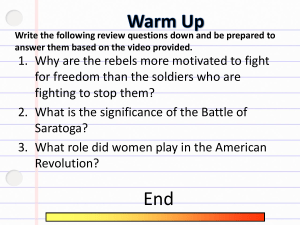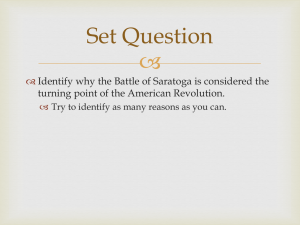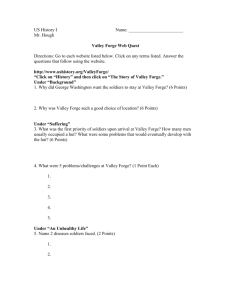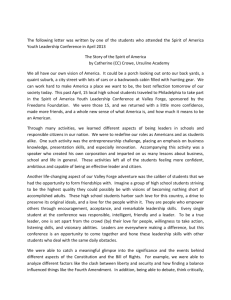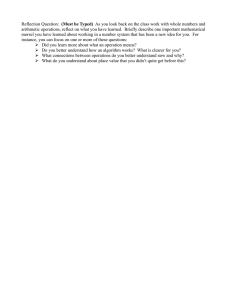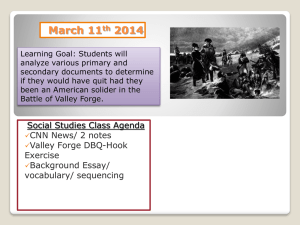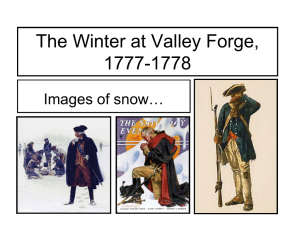Read the following passage and answer questions 1-3
advertisement
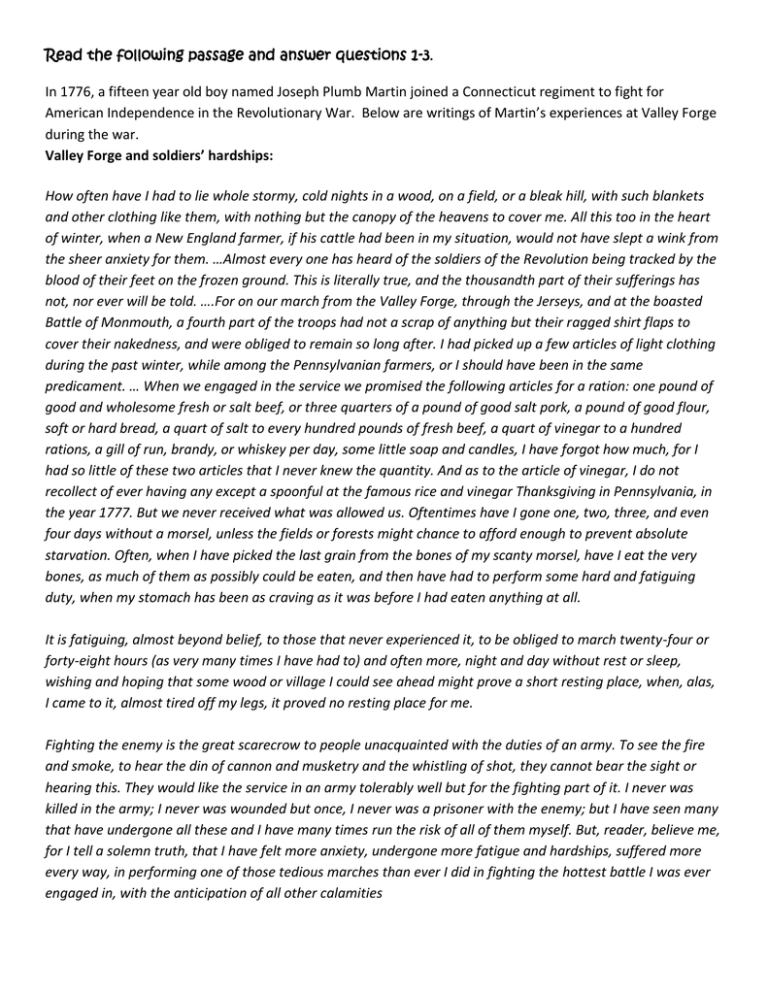
Read the following passage and answer questions 1-3. In 1776, a fifteen year old boy named Joseph Plumb Martin joined a Connecticut regiment to fight for American Independence in the Revolutionary War. Below are writings of Martin’s experiences at Valley Forge during the war. Valley Forge and soldiers’ hardships: How often have I had to lie whole stormy, cold nights in a wood, on a field, or a bleak hill, with such blankets and other clothing like them, with nothing but the canopy of the heavens to cover me. All this too in the heart of winter, when a New England farmer, if his cattle had been in my situation, would not have slept a wink from the sheer anxiety for them. …Almost every one has heard of the soldiers of the Revolution being tracked by the blood of their feet on the frozen ground. This is literally true, and the thousandth part of their sufferings has not, nor ever will be told. ….For on our march from the Valley Forge, through the Jerseys, and at the boasted Battle of Monmouth, a fourth part of the troops had not a scrap of anything but their ragged shirt flaps to cover their nakedness, and were obliged to remain so long after. I had picked up a few articles of light clothing during the past winter, while among the Pennsylvanian farmers, or I should have been in the same predicament. … When we engaged in the service we promised the following articles for a ration: one pound of good and wholesome fresh or salt beef, or three quarters of a pound of good salt pork, a pound of good flour, soft or hard bread, a quart of salt to every hundred pounds of fresh beef, a quart of vinegar to a hundred rations, a gill of run, brandy, or whiskey per day, some little soap and candles, I have forgot how much, for I had so little of these two articles that I never knew the quantity. And as to the article of vinegar, I do not recollect of ever having any except a spoonful at the famous rice and vinegar Thanksgiving in Pennsylvania, in the year 1777. But we never received what was allowed us. Oftentimes have I gone one, two, three, and even four days without a morsel, unless the fields or forests might chance to afford enough to prevent absolute starvation. Often, when I have picked the last grain from the bones of my scanty morsel, have I eat the very bones, as much of them as possibly could be eaten, and then have had to perform some hard and fatiguing duty, when my stomach has been as craving as it was before I had eaten anything at all. It is fatiguing, almost beyond belief, to those that never experienced it, to be obliged to march twenty-four or forty-eight hours (as very many times I have had to) and often more, night and day without rest or sleep, wishing and hoping that some wood or village I could see ahead might prove a short resting place, when, alas, I came to it, almost tired off my legs, it proved no resting place for me. Fighting the enemy is the great scarecrow to people unacquainted with the duties of an army. To see the fire and smoke, to hear the din of cannon and musketry and the whistling of shot, they cannot bear the sight or hearing this. They would like the service in an army tolerably well but for the fighting part of it. I never was killed in the army; I never was wounded but once, I never was a prisoner with the enemy; but I have seen many that have undergone all these and I have many times run the risk of all of them myself. But, reader, believe me, for I tell a solemn truth, that I have felt more anxiety, undergone more fatigue and hardships, suffered more every way, in performing one of those tedious marches than ever I did in fighting the hottest battle I was ever engaged in, with the anticipation of all other calamities Name: ______________________________________________ Period: ____ Date: _________________________ Valley Forge and Soldiers’ Hardships 1. Based on Joseph Plumb Martin’s experience, how well-equipped was the Continental Army? 2. What does the author mean when he states the following: “Oftentimes have I gone one, two, three, and even four days without a morsel, unless the fields or forests might chance to afford enough to prevent absolute starvation.” 3. According to Martin, what type of hardships do soldiers experience? Explain citing evidence from the passage.
